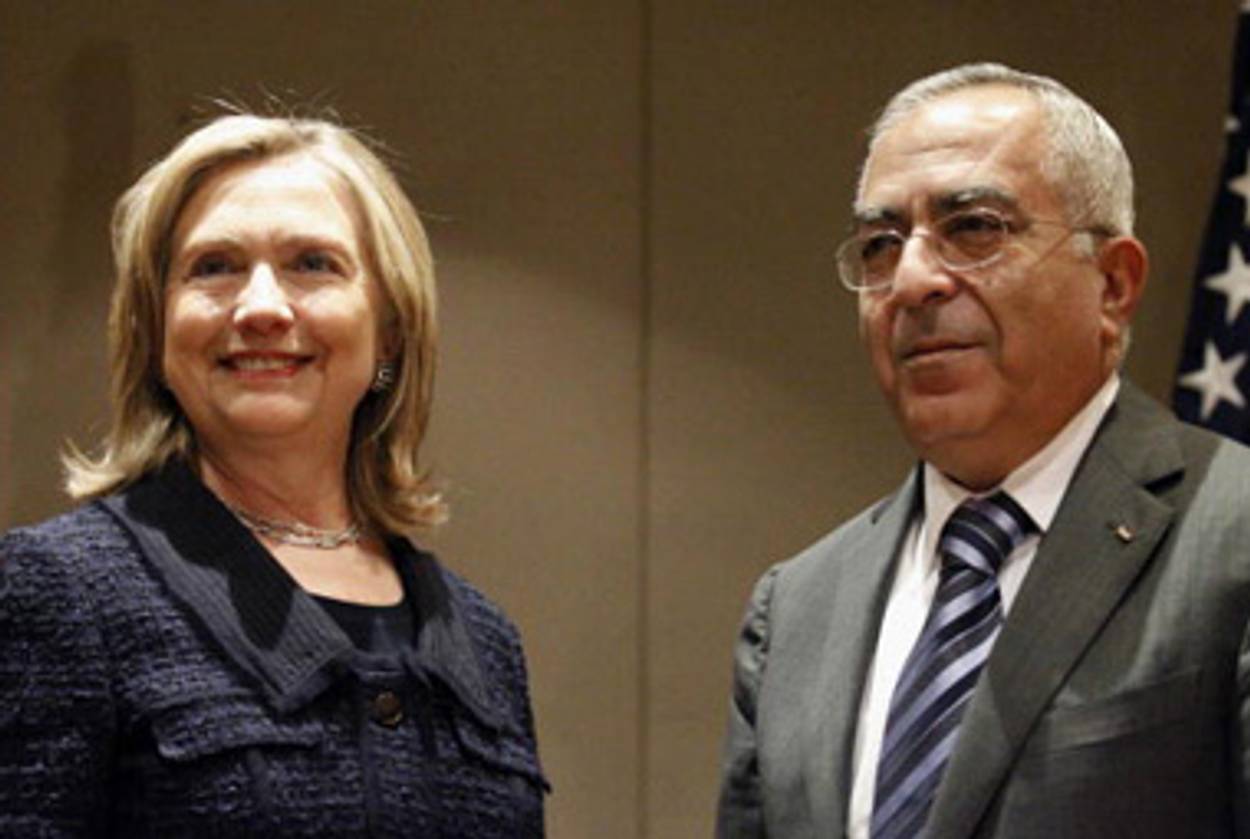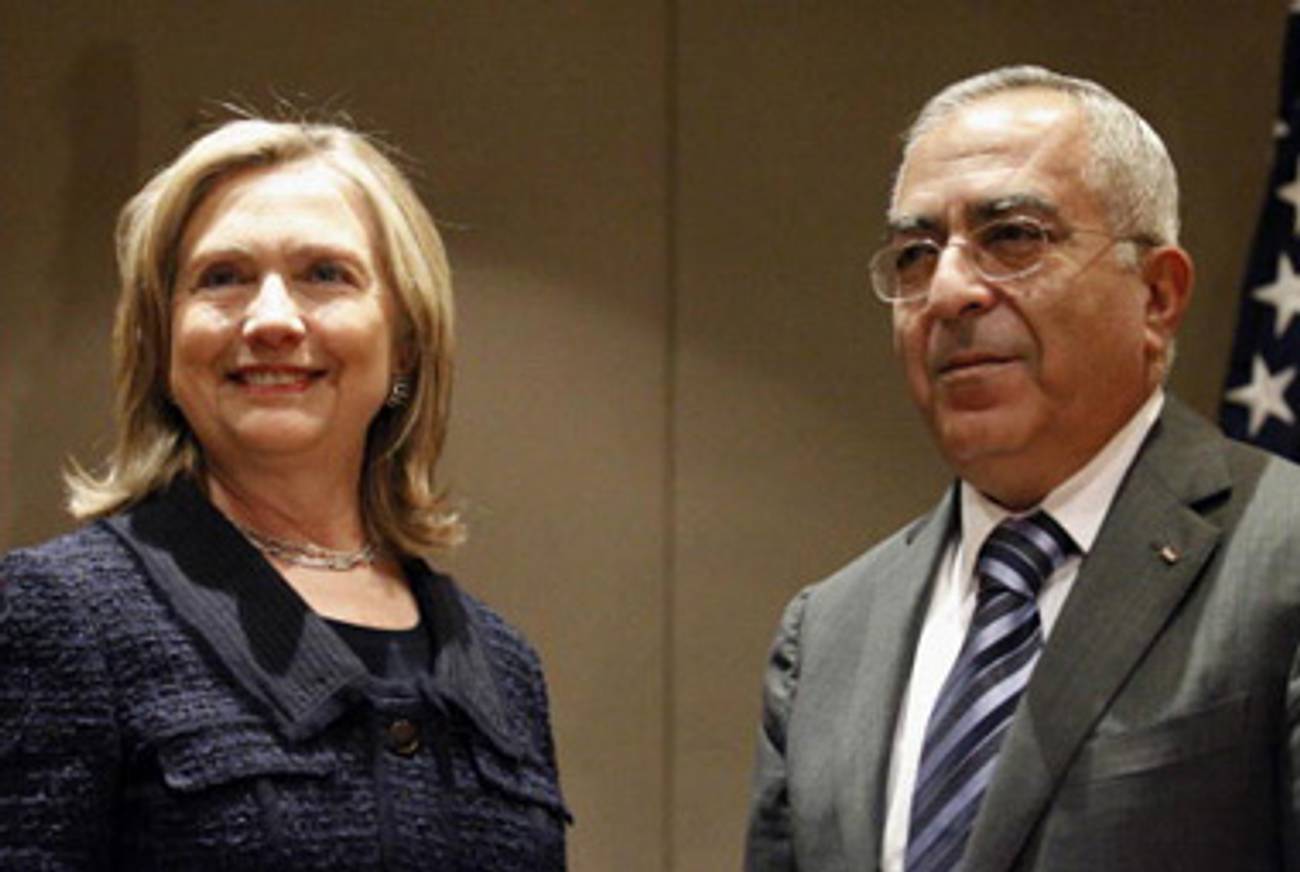Too Good To Be True?
Salam Fayyad, the West’s favorite Palestinian




In all the praise for Palestinian Prime Minister Salam Fayyad—from Thomas Friedman to Roger Cohen to even Israeli President Shimon Peres, who famously called him “the Palestinian Ben Gurion” (in a more measured take, contributing editor Michael Weiss was there first)—I had yet to see a single anecdote that fully captured how so many various Western bien pensant political observers had anointed Fayyad, the head of the West Bank cabinet who has emphasized state-building for its own sake and as a means of putting pressure on Israel to make peace, as their favorite Palestinian; as, really, their Palestinian best friend.
That is, not until I had read Tablet Magazine contributing editor Nathan Thrall’s indispensable new dispatch, in which we learn that when Fayyad, who holds an economics Ph.D. from the University of Texas, first met President George W. Bush in 2003 (he was then Yasser Arafat’s finance minister), the former Texas governor “greeted him with index and pinky fingers extended to display UT Austin’s ‘Hook ‘em Horns’ sign.”
Thrall’s article is most valuable, though, because its combination of first-person reporting and exhaustive collation makes the most persuasive case yet that, as an earlier study had hinted, Fayyad’s state-building, while not without its successes, is ultimately more of a chimera than its champions like to admit; is unsustainably dependent on authoritarianism; and is unpopular among a likely majority of West Bank Palestinians.
Specifically, many residents could find themselves turning to Hamas (as, indeed, they already did in elections held a few years ago) unless the leadership finds itself some more legitimacy, and fast; and yet the mode of state-building, the negotiating with Israel, and the cooperation with the West make that less likely. It was during Israel’s Gaza conflict with Hamas that Fayyad’s Palestinian Authority “surrounded mosques, kept young men from approaching Israeli checkpoints, arrested protesters chanting Hamas slogans, and dispersed demonstrators with batons, pepper spray, and tear gas.” Fayyad and his security services’ cooperation with Israel and the United States—major parts of the article explore a three-star U.S. general’s quiet but prominent advisory role in forming the P.A.’s security force—make Fayyad and President Abbas, whose term expired well over a year ago but who continues to rule by presidential decree, appear increasingly illegitimate in the eyes of most of their “constituents.” Reports Thrall:
Fayyad, for all his commitment to accountability and transparency, has repeatedly been found in polls to have less legitimacy than the Hamas prime minister in Gaza, Ismail Haniyeh, and oversees a government that in a recent Global Integrity Index tied with Iraq as the sixth most corrupt in the world. … West Bank residents have consistently reported feeling less safe than Gazans, whose lives under Hamas rule are in many respects worse.
Things to keep in mind as the Israeli leadership negotiates for peace with … this Palestinian leadership. One worries about whether they will reach a deal, of course. But after reading this article, one also worries about what happens after they do, and a despised leadership has to continue dictating to its own people, all while its alternative, Hamas, looks that much more attractive.
Our Man in Palestine [NYRB]
Related: Are Palestinians Building A State? [Carnegie Endowment]
The Pragmatist [Tablet Magazine]
Earlier: What Is Fayyadism?
Marc Tracy is a staff writer at The New Republic, and was previously a staff writer at Tablet. He tweets @marcatracy.